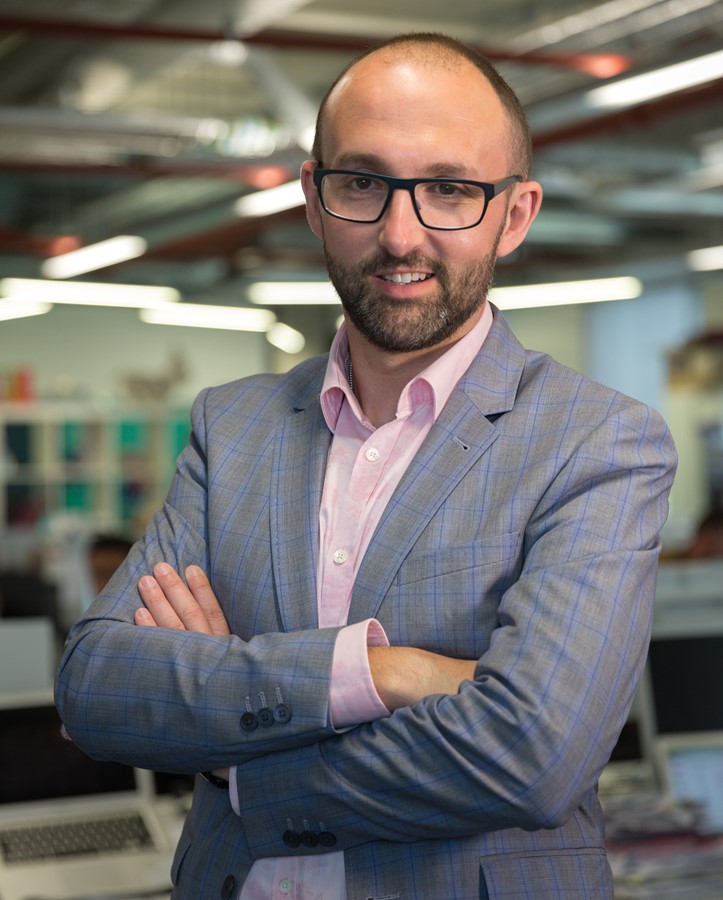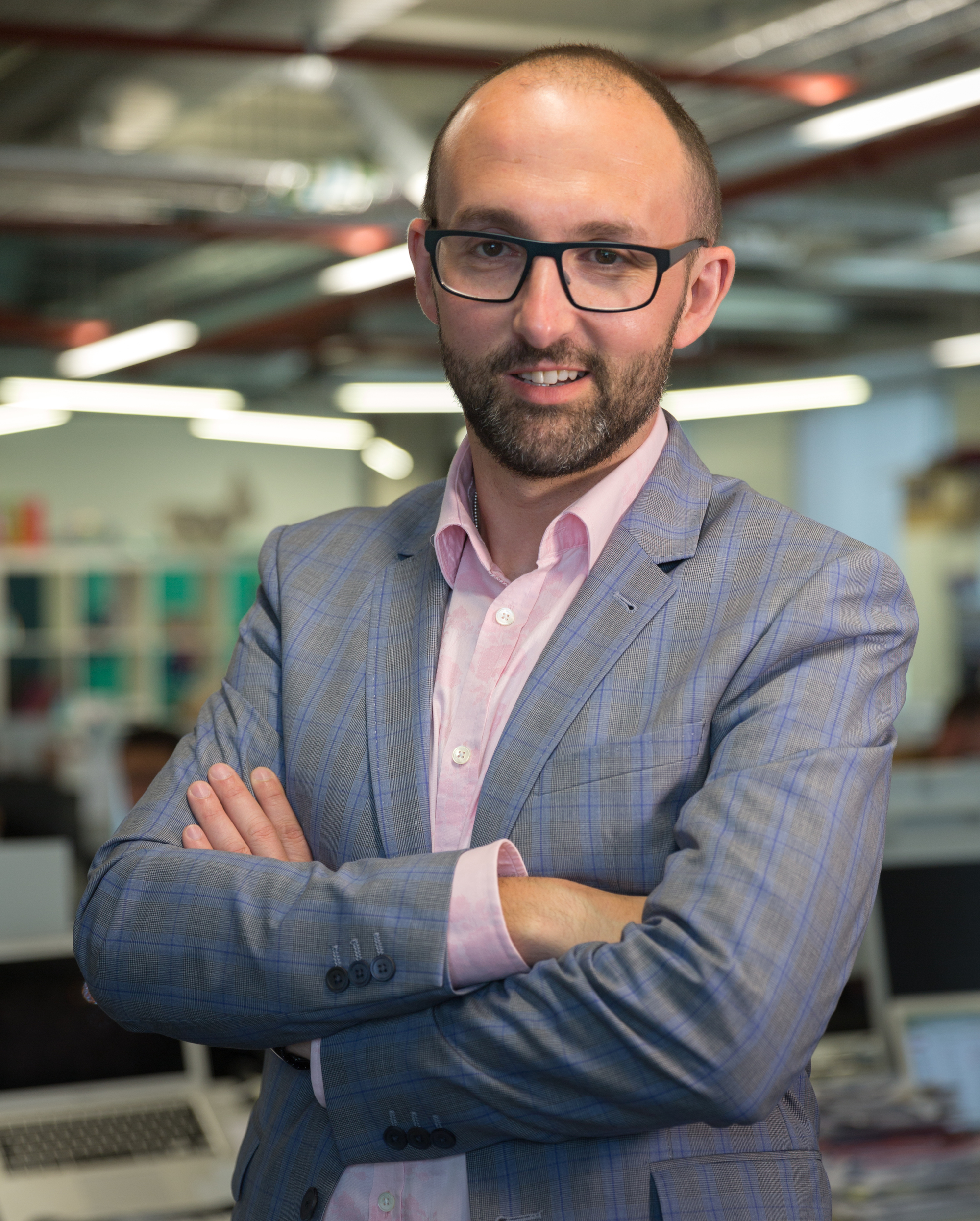Spotlight On...Jason Spencer, Business Development Director at ITV


As Business Development Director for 11 years, Jason has led the growth in revenue of ITV’s commercial teams across the UK outside London in delivering creative business solutions through working closely in partnership with advertisers and their media agencies. Prior to ITV, Jason spent most of his career at media agencies – from media planning roles at Carat and PHD in London to running PHD North in Manchester.
Why is TV advertising still so important for brands?
Nothing beats the way TV brings the nation together around big cultural moments – from
I’m A Celebrity to the World Cup to Coronation Street. The emotional connection and trust
that brands can achieve through being in these environments at scale remains second to
none as a marketing environment to drive awareness and behaviour.
What makes regionality such a powerful USP for ITV and how can brands capitalise on
this?
Regionality is a real superpower of ITV – it is in our DNA and how we started. Across 19
regions, we not only carry local news, weather and other programming, but also the ability
for brands to test, learn and scale their businesses, proving the role of TV and minimising
risk through investment levels.
Given huge changes in the viewing habits of the nation, what is ITV doing to evolve its
offering to viewers and advertisers?
We have seen an acceleration in the shift to streaming services during lockdown and as a
result, viewing is as fragmented as it ever has been. That’s why we have launched ITVX, our
free, advertising-funded streaming service which has replaced ITV Hub. We are investing
heavily in this in terms of content (£160m in acquisitions, original commissions and content
partnerships) and marketing (£40m) as well as ensuring it is available on all platforms to
boost reach and regular viewing beyond the 35 million registered users we had on ITV Hub
previously. We have exclusive weekly drops of brand new scripted and non-scripted and
believe we can reach a mainstream audience. Beyond this we have a huge library of films
and boxsets as well as FAST channels to capture more viewers more often.
How does this sit alongside linear TV for viewers and brands?
Alongside this, it is worth saying that linear broadcast TV remains incredibly strong and for
many viewing occasions – across live sport, event TV and daytime for instance – it is the only
place to be. We will continue to invest annually more than £1 billion in incredible original
premium content across all genres and across our family of channels alongside the
investment in ITVX. So across ITV and ITVX, we believe we can deliver – for viewers as well
as advertisers – the best of both worlds with this strategy and investment.
How important is first party data to ITV and how do you use this responsibly?
It is hugely important for us but also for brands in this cookieless world. For us, it is about
protecting our viewers' data and helping us to understand better what they want. Our
success and evolution has been built on listening to what viewers want and adapting. We
can now do that in ever more sophisticated ways. With millions of registered users we have
a wealth of insights and signals to help guide our investment and to enable us to create
10,000 different targeting opportunities for brands. Through our investment in InfoSum and
our new retail media partnerships with Tesco via Dunnhumby and Boots Advantage data,
we can now offer brands first party data matches in ever more sophisticated ways to enable
them to grow their businesses and measure success.
How did COVID change the way you work with advertisers?
The challenges we faced – like with many businesses – meant we had to adapt at a faster
rate than ever before, evolving how we did things to meet challenges as well as
opportunities that we faced as well as the advertisers and agencies we work with. We
listened and responded in new ways – for instance, advertisers and agencies wanted more
flexibility and shorter booking deadlines, so we put these in place removing AB deadlines.
They wanted more innovation and the chance to work with us at an earlier stage in testing
new formats and opportunities, so we launched AdLabs, our ad innovation hub.
What do you see as the main challenges you will face in the near future and how you
plan to overcome them?
There is more uncertainty than many of us have experienced ever before and many of the
drivers for this are largely outside our control – from the war in Ukraine to the cost of living
crisis - meaning they affect us personally as well as the businesses we work for.
Undoubtedly some sectors are affected more than others, so what my team has been
focusing on largely falls under the headline of our Backing Business initiative. This covers a
wide range of insights and analysis to support businesses through uncertain times – for
instance at the moment we are about to launch a piece called Race To the Top about the
importance of value for consumers; and we have a wealth of insights into the importance of
advertising in downturns to drive growth. Beyond this, we have a number of initiatives to
help brands manage costs and minimise risk as they test and learn – from matched funding
to regionality to creative production support and much more.
How have ITV approached social purpose overall within the role you play in UK culture
and society?
We take our social purpose responsibilities very seriously, recognising the impact we can
have at ITV in terms of changing hearts and minds. Our social purpose strategy focuses on
shaping culture for good and encompasses four areas - better mental and physical health,
diversity and inclusion, climate action and giving back. Through our activities on and off
screen – including the likes of Britain Get Talking, Home Planet, Eat Them To Defeat Them
and One Million Minutes – we aim to drive behaviour change. We have collaborated with
brands when appropriate in this space too, and report the impact of what we do in our
annual Social Purpose Impact Report.
What piece of advice would you give to marketers to support marketing & innovation
in working with ITV?
Invite us in. Where we do our best work is when we sit in a room with brands,
understanding their business and consumer insights and challenges, collaborating on
creating powerful bespoke partnerships and finding ways to drive brand and business
results.
What have been the challenges in getting new initiatives off the ground and how did
you overcome them?
There has been a shift in mindset, accelerated by the COVID lockdowns, to adopt a much
more organic, always in beta approach to developing ideas and finding solutions. When you
make the move from worrying about what might go wrong to embracing mistakes, testing
and learning, great things can happen.
What has been a marketing highlight for you in your career?
Too many to mention! Prior to my time at ITV, it would be being part of the team at PHD
North who, along with Leith, won a Cannes Gold Lion for our work on IRN-BRU with the
BRUZIL World Cup 2010 campaign. During my time at ITV, it has to be the work we have
done with clients over the years, winning Mediaweek Awards Grand Prix for eight out of the
last 10 years – with everything from Project 84 to Ring.com’s partnership around Saturday
Night Takeaway.
What is most enjoyable part of your job?
Nothing quite beats helping brands experience the power of TV for the first time, seeing
how it shifts the dial for their business. We have a number of ways we support new-to-TV
brands from matched funding to creative production support. Watching these brands then
go on to scale up using TV to become successful brands is great.
This interview was carried out by Rachel Emson, Vice Chair for the CIM's Northwest Board
How did you ‘get into’ Marketing?
Not through careful planning! After a nomadic period after university (running an off
licence, telesales and travelling the world), I started at the bottom as a National Press Media
Exec at Carat London and worked my way up through Comms Planning roles at Carat and
PHD in London. Relocating back to Manchester, I ran PHD North, moving to ITV just over 11
years ago, where I have been running our commercial teams around the UK working closely
with advertisers and agencies.
